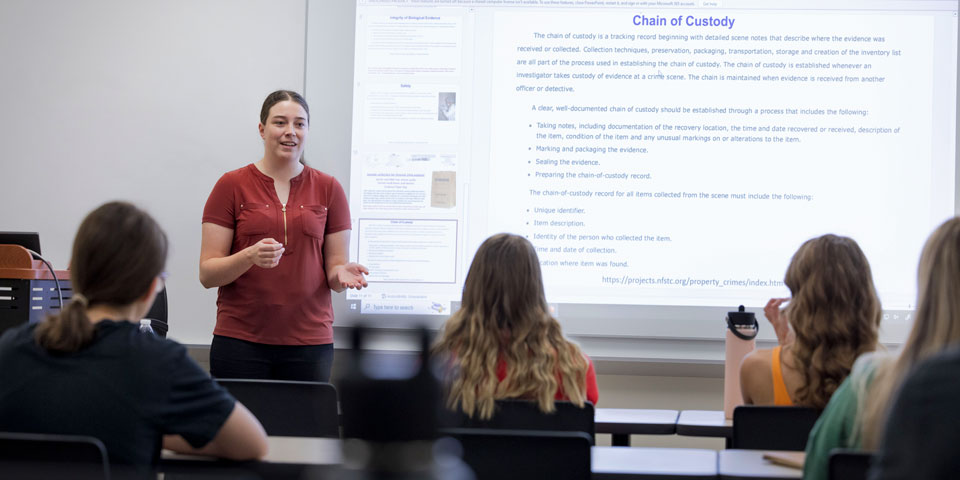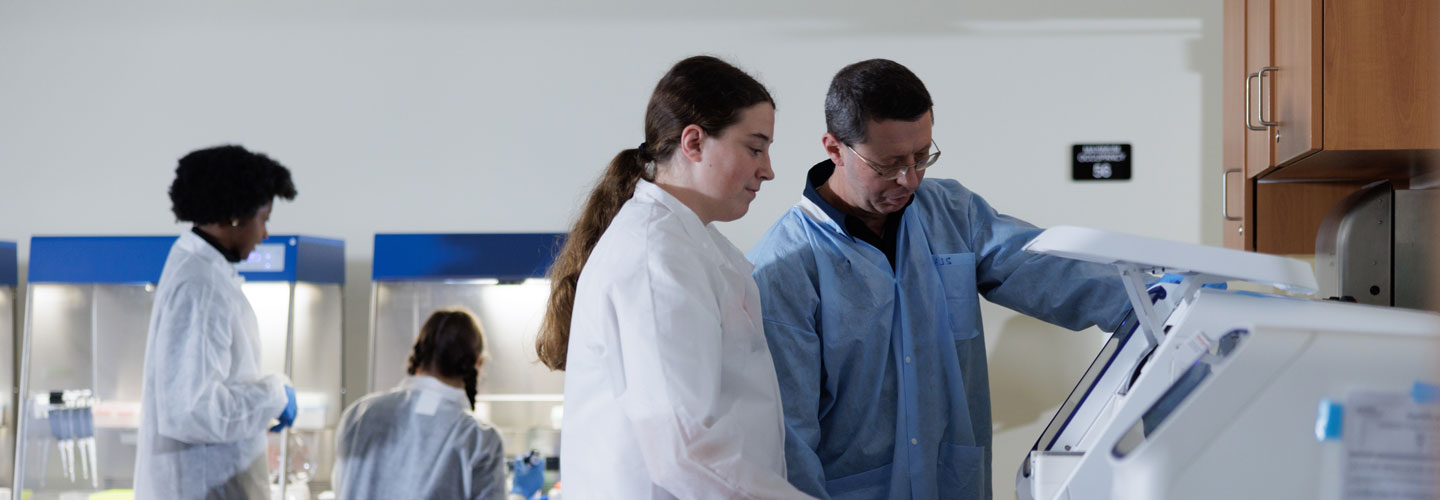Solid DNA
When Dr. Alexander Sinelnikov joined Indiana Tech in 2020 to lead the university’s forensic science program, his goal was to develop outstanding graduates who are well-prepared to succeed in any biology laboratory setting.
Four years later, he’s getting the results he was looking for: graduates are earning quality positions and the program is growing.
“Our graduates are ready for any lab setting, whether it be forensic, clinical, research or industry, or any other laboratory working with DNA,” Sinelnikov said. “We have had a 64 percent increase in students enrolled in our program from fall 2023 to fall 2024. I attribute this to the outstanding work of our admissions team and the various events it hosts over the year to promote our university.”
Without question, Tech’s admissions team does remarkable work in introducing our university to hundreds of prospective students and their families every year. But Sinelnikov has made the job easier by creating a hands-on environment where relevant learning takes place—an environment equipped with the kinds of state-of-the-art lab equipment used by professionals in the field.

“Every class related to my degree was very hands-on from my freshman year on,” said Brooke Buhr, a 2024 graduate who joined the Indiana State Police Laboratory in August as a forensic scientist. “Even the classes that didn’t necessarily fully align with what I saw myself doing in my future job, they were teaching me the non-tangible skills—public speaking, being able to work in a group, being able to manage my time wisely.”
In her role, Brooke is analyzing DNA and body fluids to help her team solve crimes. That could entail analyzing rape kits, blood on a bloody knife or body fluids on clothes.
“Victims of crimes are very vulnerable people, and helping their families get closure in court will be a really rewarding aspect of this job,” Buhr said.
Tech’s forensic science graduates can also be hired for an array of related positions, including fingerprint analyst, crime scene investigator, bloodstain pattern analyst and lab technician. Arnez Williams, a 2022 grad, is a fingerprint classifier, also with the Indiana State Police Laboratory. Jocelyn Bringht, a 2024 graduate, is pursuing a nursing degree within the Accelerated Bachelor of Science in Nursing program offered through a partnership between Huntington University, Indiana Tech and Parkview Health.
“A forensic nurse is a nurse who specializes in trauma, treating crime survivors and collecting evidence that could help in criminal cases,” Bringht said. “I want to find evidence to help with crimes and help someone—even if just a tiny bit—get through one of the hardest things they could go through.”
America has always had a fascination with crime, and that intrigue has grown exponentially over the past 25 years with the advent of streaming services, such as Netflix, and podcasts. If you are a crime junkie, there is an unlimited supply of content out there to feed your need.
“The interest in solving crime and the role forensic science plays in that is not going away anytime soon,” Dr. Sinelnikov said. “That’s why we are going to continue to develop relevant, interesting courses and maintain a modern lab setting that prepares our graduates to succeed in any lab setting they pursue.”
Here are some current students in Indiana Tech’s forensic science program:
“I chose this career because I liked the puzzle-pieces, problem-solving aspects… I want to help reduce crime.”
Damon Kuntz
Bourbon, Indiana
“Forensic science assists criminal cases in finding and examining evidence, which piqued my interest”
Sophia Jermstad
Minneapolis, Minnesota
“I chose to pursue a degree in forensic science to help reduce the number of people wrongly convicted due to forensic error.”
Samantha Yauch
Fort Wayne, Indiana
